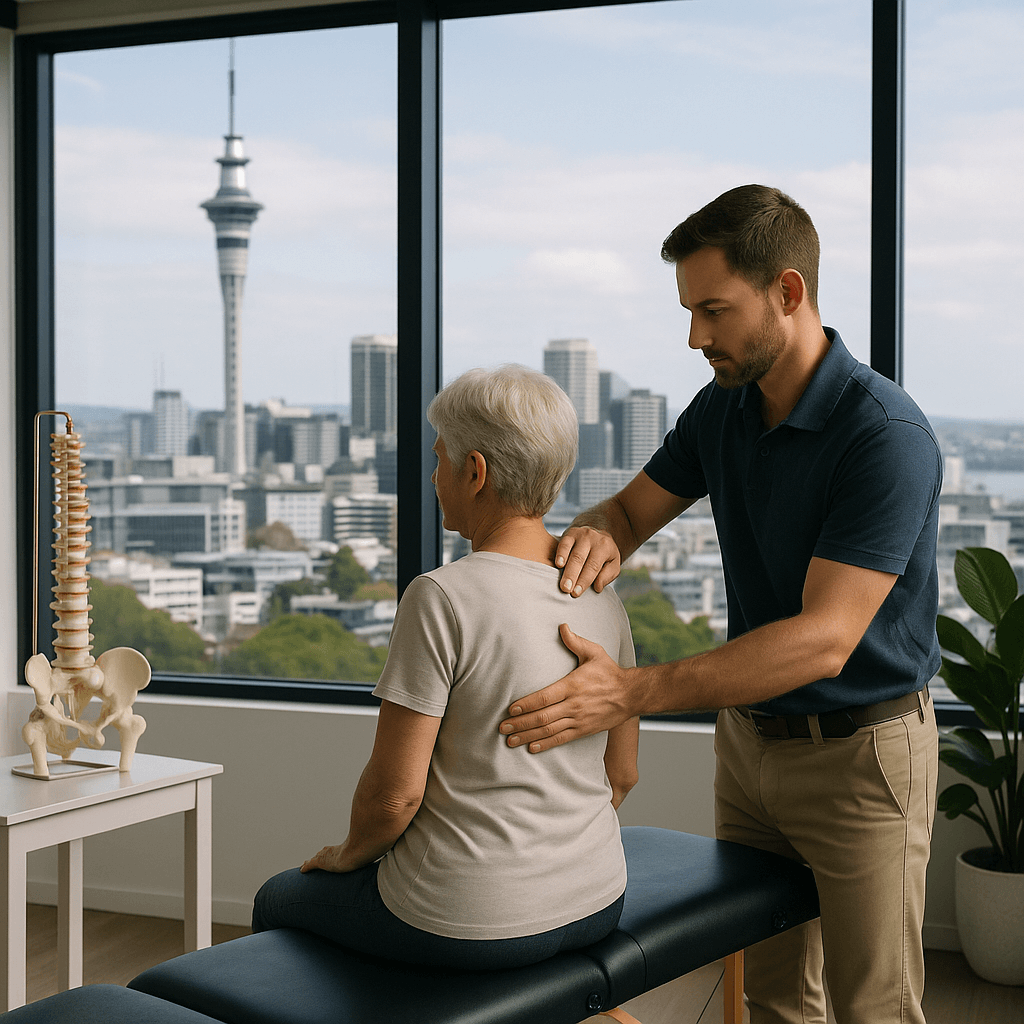Discovering how to treat arthritis can significantly improve quality of life, employing a combination of medical treatments, lifestyle changes, and alternative therapies tailored to the individual’s condition.
- What are the common symptoms of arthritis?
- Can lifestyle changes really help with arthritis pain?
- Are there specific exercises that are recommended for arthritis?
- How effective are alternative therapies like acupuncture for arthritis?
- Is surgery always necessary for severe arthritis?
- Can diet influence arthritis symptoms?
- How do chiropractic treatments help arthritis?
- Are there any potential side effects of arthritis medications?
Arthritis is a term that refers to a variety of joint inflammations, which affect people globally, leading to pain, stiffness, and reduced mobility. Understanding its nature is essential to managing its symptoms effectively. In Auckland, New Zealand, individuals often seek professional guidance from experts like chiropractors to alleviate discomfort and improve joint function.
Understanding Arthritis
The first step in the treatment of arthritis is comprehending what it entails. Arthritis encompasses over 100 different types, each with unique causes and symptoms. The most prevalent forms include osteoarthritis, rheumatoid arthritis, and psoriatic arthritis. Osteoarthritis is commonly related to wear and tear of the joints as we age, whereas rheumatoid arthritis is an autoimmune disorder causing inflammation in the joints.
Recognising the specific type of arthritis through proper diagnosis is critical, as it influences the treatment strategy. Specialised medical professionals can provide this knowledge, allowing for personalized treatment approaches that cater to the distinctive manifestations of the disease.
Lifestyle and Dietary Changes
Adopting specific lifestyle changes can make a significant impact on managing arthritis. Regular, low-impact exercise is recommended to maintain joint function and flexibility. Activities such as swimming, cycling, or walking are excellent choices. Moreover, weight management plays a crucial role since extra body weight exerts additional pressure on already strained joints.
Diet is another critical aspect in arthritis management. A diet rich in anti-inflammatory foods, such as omega-3 fatty acids found in fish, nuts, and seeds, can alleviate symptoms. Conversely, reducing intake of processed foods, sugars, and certain oils can minimise inflammation and pain.
Alternative Therapies
Alternative therapies, including chiropractic care, are increasingly sought by people aiming for holistic management of arthritis. In Auckland, establishments like professional chiropractors are pivotal in providing relief through manipulative techniques that enhance joint function. Acupuncture, massage, and physiotherapy are other alternative therapies that can be beneficial alongside conventional treatments.
These therapies not only focus on symptomatic relief but also aim to address underlying musculoskeletal imbalances, contributing to improved quality of life for those affected by arthritis.
Combining these various approaches offers a comprehensive strategy to treat arthritis, tailored to individual needs and preferences.

Medical Treatments for Arthritis
Understanding arthritis and its symptoms is just the beginning of managing this condition. Medical treatments play a crucial role in alleviating pain, improving joint function, and enhancing quality of life for those affected. It’s essential to consider a range of medical interventions, ranging from medications to potentially more invasive procedures, based on the severity and type of arthritis.
Medication Options
Medications are often the first line of defence in the medical management of arthritis. There are several types of medications available that can help manage symptoms effectively.
Nonsteroidal Anti-Inflammatory Drugs (NSAIDs): NSAIDs are commonly prescribed to reduce both pain and inflammation in arthritis patients. Over-the-counter options include ibuprofen and naproxen, while stronger versions may require a prescription. These medications can be very effective but should be used with caution, as long-term use can lead to gastrointestinal issues.
Corticosteroids: Corticosteroids, such as prednisone, provide fast relief by reducing inflammation and suppressing the immune system. These can be administered orally or through injections. However, potential side effects such as weight gain, high blood pressure, and increased risk of infection necessitate careful management and medical supervision.
Disease-Modifying Antirheumatic Drugs (DMARDs): DMARDs are particularly useful for conditions like rheumatoid arthritis, as they not only relieve symptoms but also slow disease progression. Methotrexate and hydroxychloroquine are common examples, but these drugs often require regular monitoring due to potential liver damage and other side effects.
Biologic Response Modifiers
Targeted Treatment: Biologics are a newer class of DMARDs that target specific components of the immune system. These drugs, such as etanercept and infliximab, are typically used when traditional DMARDs are not effective. Administered via injection or infusion, biologics have shown substantial effectiveness in controlling rheumatoid arthritis symptoms.
Considerations and Risks: It’s worth noting that biologics can increase the risk of serious infections, and patients usually undergo testing for diseases like tuberculosis before starting treatment. Regular monitoring remains essential for anyone on biologic therapy to ensure safety and efficacy.
Physical Therapies and Rehabilitative Services
Alongside medication, certain physical therapies can support the management of arthritis symptoms, providing a more holistic approach to treatment.
Physical Therapy: Engaging with a trained physiotherapist can help improve joint movement and increase strength, ultimately reducing pain. Therapists create tailored exercise programs that address individual limitations, highlighting the importance of consistent physical activity in managing arthritis.
Occupational Therapy: Occupational therapists can assist patients in adapting daily activities to minimise stress on joints. By suggesting ergonomic tools and modifications, therapists play a critical role in enhancing daily function and quality of life.
Surgical Options for Severe Cases
While medications and therapies can manage symptoms, severe cases of arthritis may necessitate surgical interventions to restore mobility and comfort.
Joint Replacement Surgery: In situations where arthritis causes significant damage and pain, joint replacement might be recommended. This surgery involves replacing damaged parts of the joint with artificial components. Hip and knee replacements are among the most common procedures, offering substantial improvements in pain relief and mobility.
Arthroscopic Surgery: Less invasive than joint replacement, arthroscopic surgery involves making small incisions to repair damaged joint tissues. This procedure can relieve pain and improve joint function with a shorter recovery period.
Understanding the medical treatment options for arthritis allows patients and healthcare professionals to create tailored management plans that suit individual needs. This comprehensive approach ensures that patients can live more comfortable and active lives despite the challenges posed by arthritis.
The next section will explore complementary and alternative treatments for arthritis, which can be integrated with medical approaches for a balanced treatment plan. We will delve into therapies that focus on nutrition, exercise, and other holistic methods that support arthritis management naturally.

Complementary and Alternative Treatments for Arthritis
Arthritis, a common condition that can cause significant discomfort and limit mobility, encourages many individuals to explore treatment pathways that extend beyond conventional medicine. This exploration often leads to complementary and alternative therapies that, when integrated with medical treatments, can enhance overall management and quality of life. Below, we delve into holistic approaches and therapeutic practices that are known to assist in alleviating arthritis symptoms.
Nutritional and Dietary Considerations
Nutrition plays a crucial role in managing arthritis, as certain foods can influence the level of inflammation in the body. Adopting an anti-inflammatory diet is a practical step towards alleviating arthritis symptoms and enhancing joint health.
An anti-inflammatory diet focuses on the consumption of whole, unprocessed foods, with an emphasis on fruits, vegetables, whole grains, and healthy fats such as those found in nuts and fish. These foods can potentially reduce the inflammatory markers within the body, which are directly associated with arthritis symptoms. Omega-3 fatty acids are particularly beneficial due to their inflammation-reducing properties, making fish such as salmon and mackerel excellent choices.
Incorporating adequate amounts of vitamins and minerals is also vital. Vitamin D and calcium are essential for maintaining bone health, thereby helping to manage arthritis. Foods rich in these nutrients, such as fortified cereals and dairy products, should be included in one’s diet. Additionally, turmeric, with its active ingredient curcumin, has been shown to have anti-inflammatory properties and can be a valuable addition to meals.
Therapeutic Exercises and Physical Activities
Engaging in regular physical activity is a critical component of managing arthritis, as it helps maintain joint function and relieves stiffness. However, it’s important to choose exercises that do not place undue stress on the joints.
Low-impact exercises such as swimming, walking, and cycling can be beneficial as they provide aerobic conditioning without putting excessive pressure on the arthritic joints. These activities help in maintaining cardiovascular health, improving mood, and enhancing muscular strength, all of which contribute to better joint stability.
Another effective approach is the incorporation of flexibility exercises. Yoga and tai chi are excellent practices that improve joint flexibility and balance, potentially reducing the risk of falls. These exercises also include a meditative aspect, fostering mental well-being, which is crucial for those dealing with chronic pain associated with arthritis.
Strength training is also significant in managing arthritis. Building muscle strength around the joints provides additional support, reducing pain and enhancing mobility. As always, it is advisable to consult with a healthcare provider or a certified fitness trainer to tailor an exercise program that fits one’s specific needs and capabilities.
Complementary and alternative therapies offer promising adjuncts to traditional medical treatments for arthritis. They provide individuals with additional tools to manage symptoms holistically, empowering them to take greater control over their condition. These therapies, when implemented effectively and consistently, can greatly contribute to the physical and emotional aspects of managing arthritis.
Transitioning into practice, individuals should consider integrating these alternative approaches with medical treatments, ensuring a comprehensive and balanced arthritis management plan.
Next, we will explore why choosing a specialised provider can make a significant difference in effective arthritis management.
Why Choose Balmoral Chiropractic for Effective Arthritis Treatment
If you’re struggling with arthritis and seeking a treatment approach that integrates holistic and therapeutic practices, Balmoral Chiropractic in Auckland, New Zealand, might be your ideal choice. We offer a personalised and comprehensive path to managing arthritis pain and improving your overall well-being. Here’s why Balmoral Chiropractic stands out from the rest.
Experienced Local Experts
At Balmoral Chiropractic, our team is composed of highly qualified and seasoned professionals who possess a deep understanding of arthritis and the ways it affects daily life. Our chiropractors are not only well-versed in the anatomy and mechanics of joints but also have extensive experience in treating arthritis-related issues. This expertise enables us to precisely tailor treatments that are best suited to each patient’s unique needs.
Being a part of the Auckland community for years means we have a genuine insight into the local health challenges faced by our clientele. This local knowledge assists us greatly in providing services that are sensitive to the specific needs of our patients—including those impacted by arthritis.
What Sets Us Apart
What differentiates Balmoral Chiropractic from other clinics is our commitment to an integrated approach to chiropractic care. We assess and treat the whole person, not just the symptoms. This holistic perspective is particularly beneficial for those managing arthritis, as it allows us to address pain management and mobility improvements comprehensively.
Our approach combines traditional techniques such as manual adjustments with modern therapies including ultrasound and electrotherapy. Furthermore, our strong focus on patient education empowers you with the knowledge and skills needed to manage your condition effectively between appointments. This dedication to treating and teaching is pivotal in facilitating a long-term improvement in quality of life.
Moreover, we go beyond standard treatments by offering lifestyle advice such as nutritional guidance and recommended exercises tailored to combat arthritis symptoms. Many of our clients have found significant relief through these personalised plans, making everyday tasks simpler and more manageable.
Another unparalleled offering from Balmoral Chiropractic is our warm, supportive environment where your care and comfort always come first. Our team takes the time to listen to your concerns and address them meaningfully, ensuring you feel heard and respected throughout your treatment journey.
Throughout this blog, we’ve discussed various ways to approach arthritis treatment, but if you want more targeted information on managing your condition, consider visiting our comprehensive guide on arthritis treatments.
If you are ready to experience the Balmoral Chiropractic difference, reach out to us today. We believe in fostering a partnership with our patients, creating a supportive path towards better health and reduced pain.
In the next section, we’ll address some frequently asked questions about arthritis, so stay tuned for more valuable insights.
Frequently Asked Questions
What are the common symptoms of arthritis?
Common symptoms of arthritis include joint pain, stiffness, swelling, redness, and decreased range of motion. Symptoms can vary depending on the type and severity of the arthritis.
Can lifestyle changes really help with arthritis pain?
Yes, lifestyle changes can play a significant role in managing arthritis pain. Regular exercise, a balanced diet, and maintaining a healthy weight can reduce strain on the joints and ease symptoms.
Are there specific exercises that are recommended for arthritis?
Exercises such as low-impact aerobic activities, strength training, and flexibility exercises are often recommended for arthritis. It’s important to consult a healthcare provider to tailor exercises to individual needs.
How effective are alternative therapies like acupuncture for arthritis?
Alternative therapies such as acupuncture can be effective for some individuals in managing arthritis symptoms. While not a cure, they can complement traditional medical treatments by providing relief from pain and improving joint function.
Is surgery always necessary for severe arthritis?
Surgery is typically considered a last resort for severe arthritis when other treatments have not provided sufficient relief. Options such as joint replacement can be effective but should be discussed thoroughly with a medical professional.
Can diet influence arthritis symptoms?
Diet can significantly influence arthritis symptoms. Anti-inflammatory foods like leafy greens, fatty fish, and nuts can help reduce inflammation, while processed foods and sugar may exacerbate symptoms.
How do chiropractic treatments help arthritis?
Chiropractic treatments can help alleviate arthritis symptoms by enhancing joint function, reducing inflammation, and increasing mobility. Chiropractors often use adjustments along with other therapies to offer a holistic treatment plan.
Are there any potential side effects of arthritis medications?
Yes, some arthritis medications may have side effects such as gastrointestinal issues, increased risk of infections, and bone thinning. It’s important to discuss potential side effects with a healthcare provider to manage them effectively.
